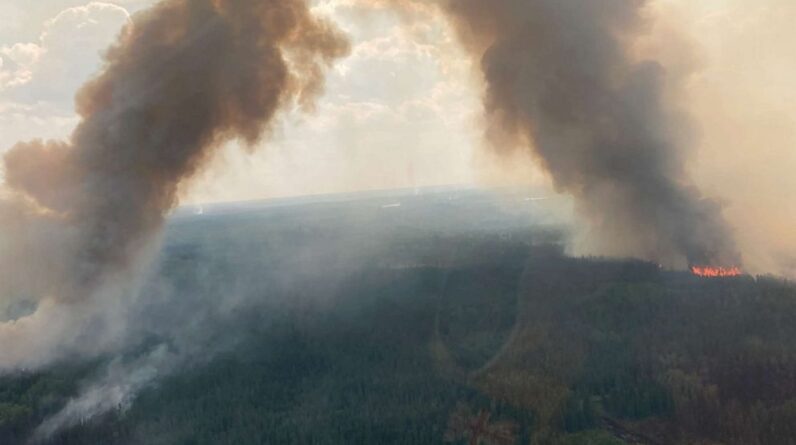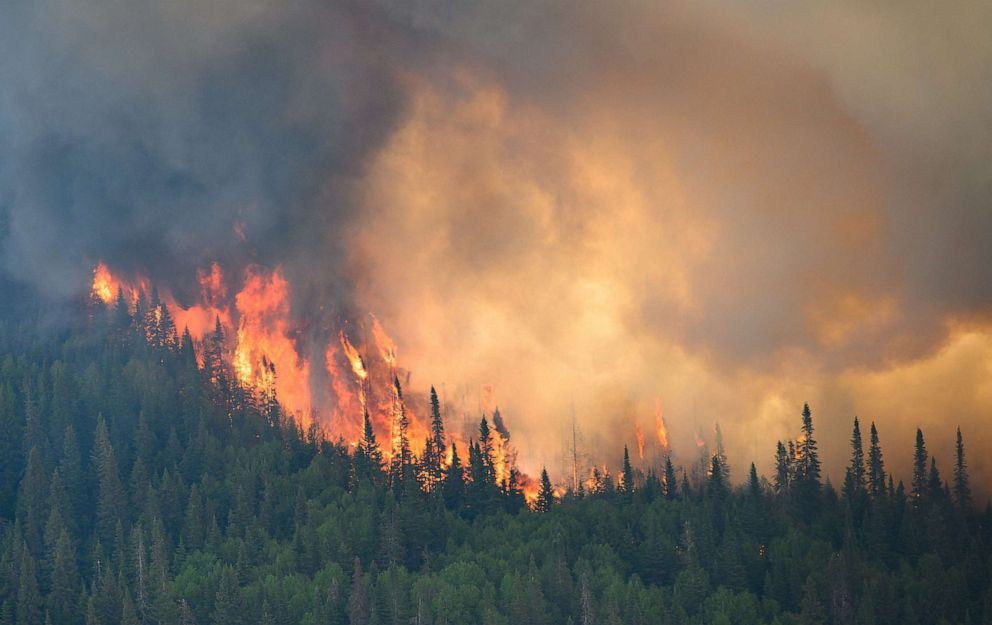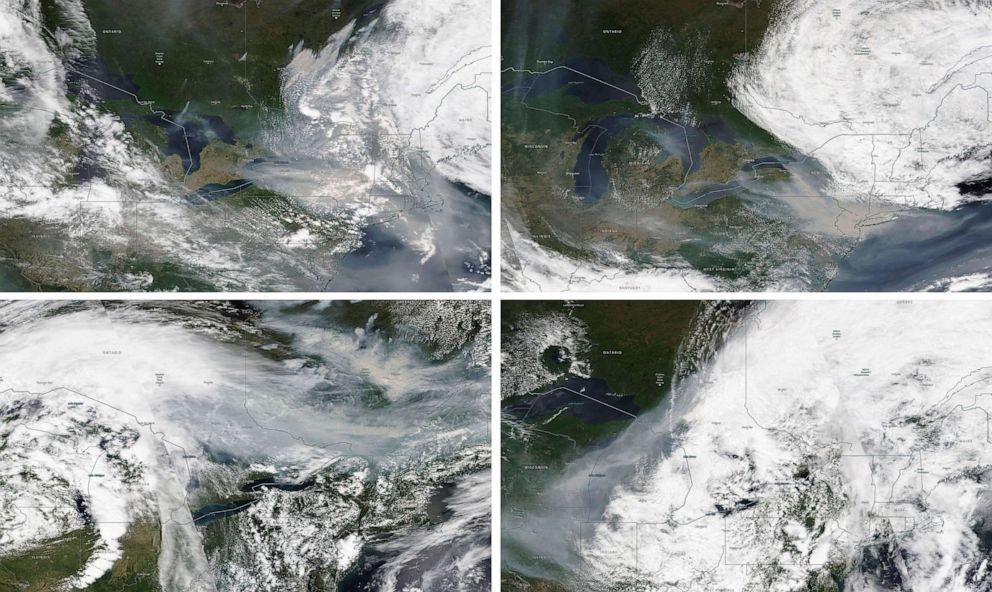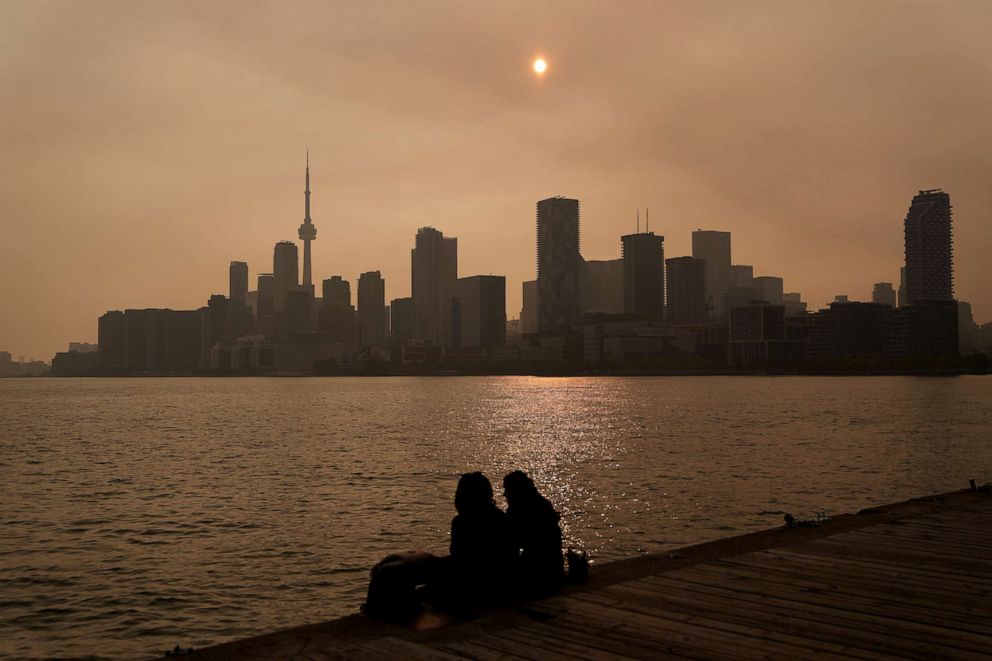
As Canada and the United States continue to feel the lasting effects of ongoing wildfires in the Great White North, environmental experts are pushing for long-term changes they say can mitigate damage from future fires.
And with climate change making such unprecedented wildfires commonplace, these experts said governments on both sides of the border must act quickly.
“It’s been a problem because we don’t have a strong federal government and it’s left us in this mess right now, Robert Gray, a wildfire ecologist based in British Columbia, told ABC News.
Smoke rises from spreading hot spots in the Kimiwan wildfire complex in Northern Sunrise County, Alberta, Canada on June 24, 2023.
Alberta Wildfire via Reuters
Gray, who has studied wildfires in both the U.S. and Canada, said warmer temperatures and drier conditions have left the land in Canada’s eastern wilderness more susceptible to larger wildfires.
Even a lightning strike on a tree or brush can be damaging, as there is much more wood to keep the fire burning for a long time.
“These fires are burning back beyond fires that haven’t been that old,” he said. “The trees come down and it’s basically available to burn again.”

Flames reach up along the edge of a wildfire as seen from a Canadian Forces helicopter surveying the area near Mistissini, Quebec, Canada on June 12, 2023.
Canadian Forces/CPL Marc-Andre Leclerc/Canadian Forces via Reuters
As for the current situation, some experts said that the terrain and severity of the fire make it difficult to put out quickly.
“Because of the size of the fires, weather will now be the only thing keeping them out. That means significant rain and, in some areas, possibly snow,” Gray said.
John Gradek, faculty professor and coordinator of the aviation management program at McGill University, told ABC News that Canada does not have a unified government entity that manages the country’s forests and manages disasters that occur in several provinces.
Those responsibilities rest with the government of each province, and because of that, he said, there is no coordinated effort between Quebec and Ontario with the current situation.

These satellite images from June 6, from top left, June 7, June 25 and June 27, 2023, show the wind movement of smoke from wildfires in Quebec, Canada.
NASA Worldview/(EOSDIS) via AP
But even without that national oversight, Gradek said emergency response teams can begin to implement mitigation techniques that have been shown to slow wildfires.
For example, in places like British Columbia, California and Colorado, which have had more experience with major wildfires, forest crews will set controlled fires to clear the understory early in the season, Gradek said.
“In the wild lands of Quebec forests there is no prescribed program to clear the forest floor,” he said.
Gradek said government groups can also plan ahead of the warmer months by deploying fire retardants from the air to reduce the chance of a spread once wildfire season begins.
Negar Elhami-Khorasani, an associate professor of civil, structural and environmental engineering at the University at Buffalo School of Engineering and Applied Sciences, told ABC News that at a minimum, local and federal governments should come up with policies and strategies that provide fair warning. on the dangers of forest fires.

People watch the sunset as smoke from wildfires is visible in Toronto on June 28, 2023.
Chris Young/AP
Similar to hurricane plans near coastal cities, Elhami-Khorasani said it wouldn’t take too much time or resources to warn residents who live and work near wildfire-prone areas in Canada about the dangers during the forest fire season.
“Before the event, completing a risk assessment and creating tools to predict what might happen can guide mitigation actions,” he added.
Gray emphasized that the increase in wildfires is a multinational problem across North America, and both the United States and Canada must prioritize wildfire mitigation in all areas of the country, as he predicted that the events this summer they will be more common.
“There’s a political will to do it, and there’s an outcry in the US that’s getting the word out about the impact,” he said.
[ad_2]
Source link





